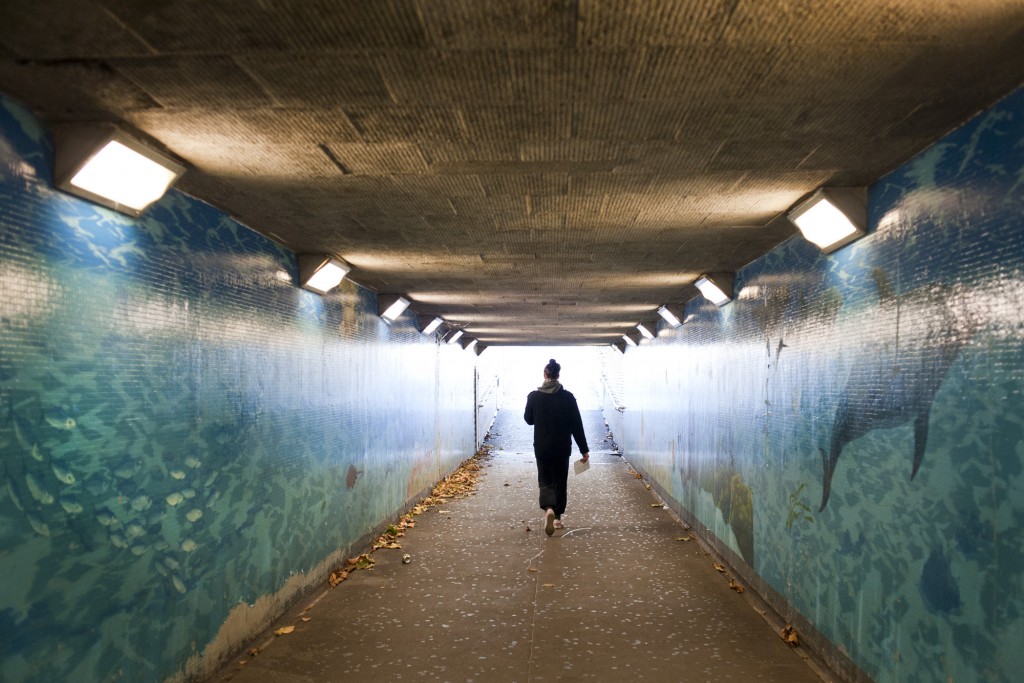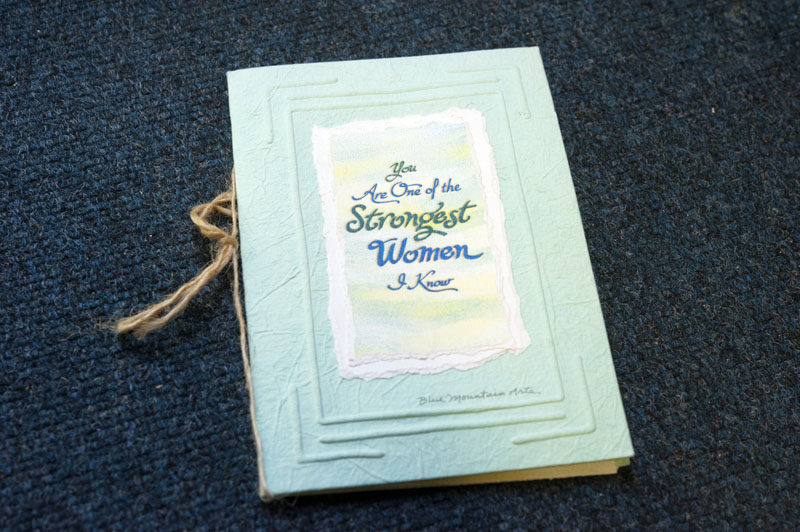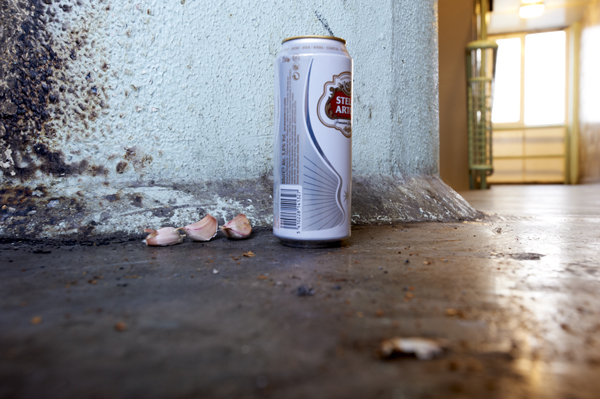- 76% of homeless women with mental ill health issues have slept rough, compared to 54% without mental health issues[1]
- The five most prevalent psychiatric diagnoses by St Mungo’s Life Works Psychotherapy service are: depression; PTSD; bi-polar affective disorder; personality disorder; psychosis-related[2]
- 69% of women were diagnosed by the St Mungo’s Life Works Psychotherapy service with one of these conditions. 43% were diagnosed with two or more[3]
- 43% of all people seen rough sleeping have a mental health support need[4]
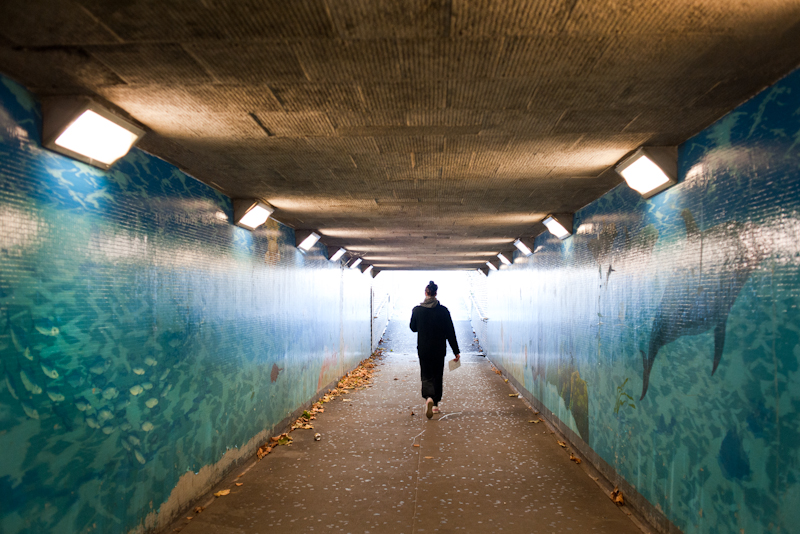 “There is the view that homelessness is about the supply of housing, or about the problems with people with addictions or who are repeatedly in prison. There are actually deeper factors that result in something which appears to be a social problem but also has a psychological dimension. My team has a view that people become homeless because of a lot of psychological factors. And that homelessness itself creates a lot of psychological trauma. Both of those things need to be treated before people can settle and get back to a regular life.”Gabrielle Brown, Psychotherapist for St Mungo’s Life Works Team
“There is the view that homelessness is about the supply of housing, or about the problems with people with addictions or who are repeatedly in prison. There are actually deeper factors that result in something which appears to be a social problem but also has a psychological dimension. My team has a view that people become homeless because of a lot of psychological factors. And that homelessness itself creates a lot of psychological trauma. Both of those things need to be treated before people can settle and get back to a regular life.”Gabrielle Brown, Psychotherapist for St Mungo’s Life Works Team
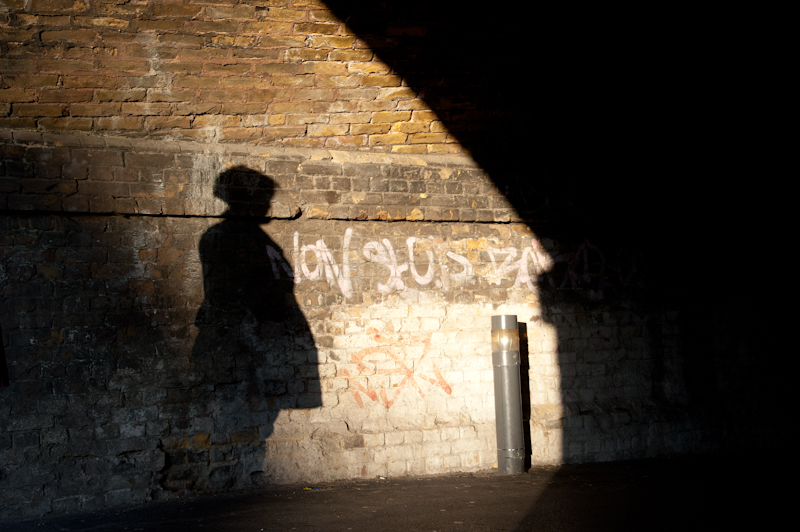 “I would say the majority of women on the streets have mental health issues. Whether that’s depression, personality disorder or bi-polar. Those with long and enduring mental health problems are closed books. We don’t even know their full names. They are so complex we could talk about them all night. They don’t scream and shout – they are the real hidden ones, the real lost women.”Kath Sims, Manager of St Mungo’s Westminster Outreach Team
“I would say the majority of women on the streets have mental health issues. Whether that’s depression, personality disorder or bi-polar. Those with long and enduring mental health problems are closed books. We don’t even know their full names. They are so complex we could talk about them all night. They don’t scream and shout – they are the real hidden ones, the real lost women.”Kath Sims, Manager of St Mungo’s Westminster Outreach Team
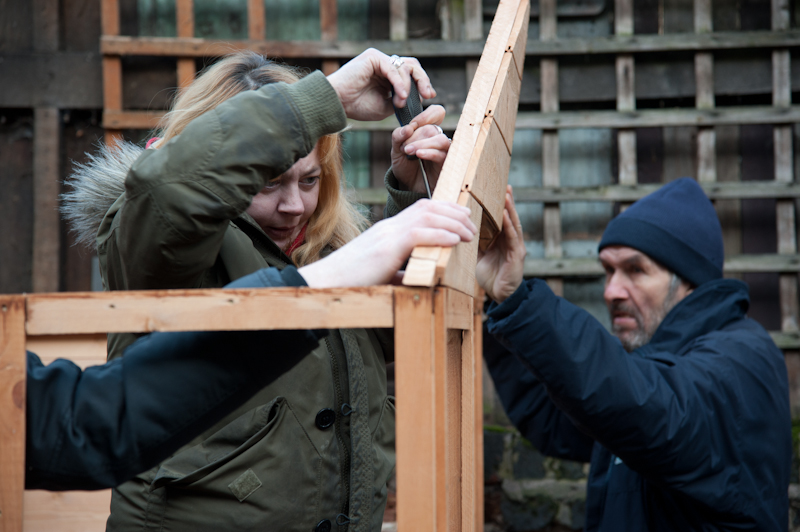 “Spending time out of your room with other people has a hugely beneficial impact in terms of mental and physical health. [In the hostel] activities are fantastic for things like social interaction and taking responsibility for your own actions. It’s about building confidence, and giving people coping mechanisms to create a sense of self-worth and positive social relationships.”Kate John, Activities Development Worker, St Mungo’s
“Spending time out of your room with other people has a hugely beneficial impact in terms of mental and physical health. [In the hostel] activities are fantastic for things like social interaction and taking responsibility for your own actions. It’s about building confidence, and giving people coping mechanisms to create a sense of self-worth and positive social relationships.”Kate John, Activities Development Worker, St Mungo’s
[1] Reeve, K; Casey, R; Goudie, R: Homeless Women: Still being failed yet striving to survive; Crisis, 2006
[2] St Mungo’s LifeWorks Psychotherapy Service
[3] St Mungo’s LifeWorks Psychotherapy Service
[4] Street to Home Annual Report 1st April 2011 to 31st March 2012; CHAIN (Combined Homeless and Information Network)
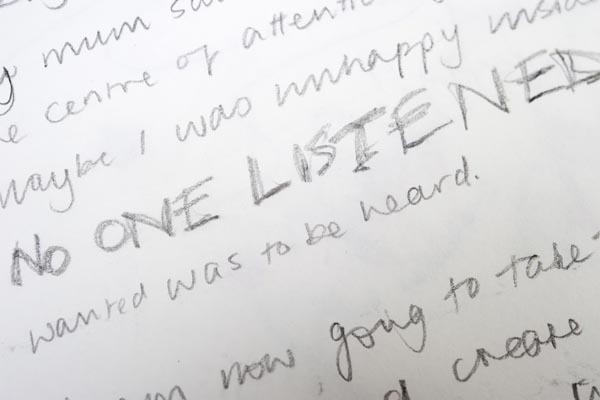 “Sexual and other forms of abuse in childhood are so common that one almost is surprised if somebody says that that wasn’t their experience. It’s not only what was done, but the environment, where other family members knew and nothing was done, which has had such a traumatic effect. Another common experience is women who were expected to take care of the rest of the family in a parental role from a very young age. One of the hostels worked so beautifully because it had a lovely maternal manager. It took a lot of burden off the women to be mother to the men and it allowed them to be mothered a bit themselves.”Gabrielle Brown, Psychotherapist for St Mungo’s Life Works Team
“Sexual and other forms of abuse in childhood are so common that one almost is surprised if somebody says that that wasn’t their experience. It’s not only what was done, but the environment, where other family members knew and nothing was done, which has had such a traumatic effect. Another common experience is women who were expected to take care of the rest of the family in a parental role from a very young age. One of the hostels worked so beautifully because it had a lovely maternal manager. It took a lot of burden off the women to be mother to the men and it allowed them to be mothered a bit themselves.”Gabrielle Brown, Psychotherapist for St Mungo’s Life Works Team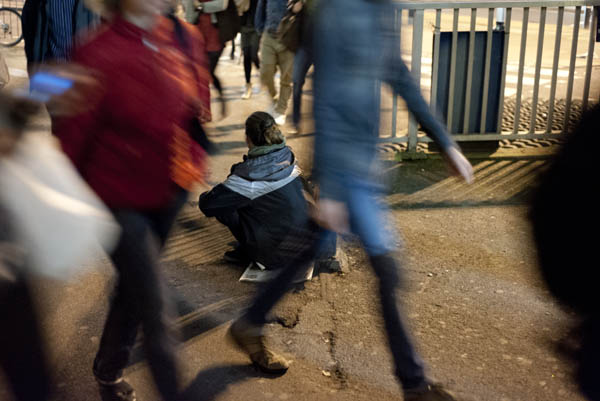 People say, everybody’s got choices – to take that drug, or to go out there and work. You talk to the women, some of them don’t have the choice. They’re dragged into this life of turmoil right from the beginning. They have parents who are involved in a paedophile ring; they are dragged into crack houses. Some of them have not seen childhood. They don’t know what it’s like to be a child.”Stella Wells, Manager of St Mungo’s service at The Chrysalis Project
People say, everybody’s got choices – to take that drug, or to go out there and work. You talk to the women, some of them don’t have the choice. They’re dragged into this life of turmoil right from the beginning. They have parents who are involved in a paedophile ring; they are dragged into crack houses. Some of them have not seen childhood. They don’t know what it’s like to be a child.”Stella Wells, Manager of St Mungo’s service at The Chrysalis Project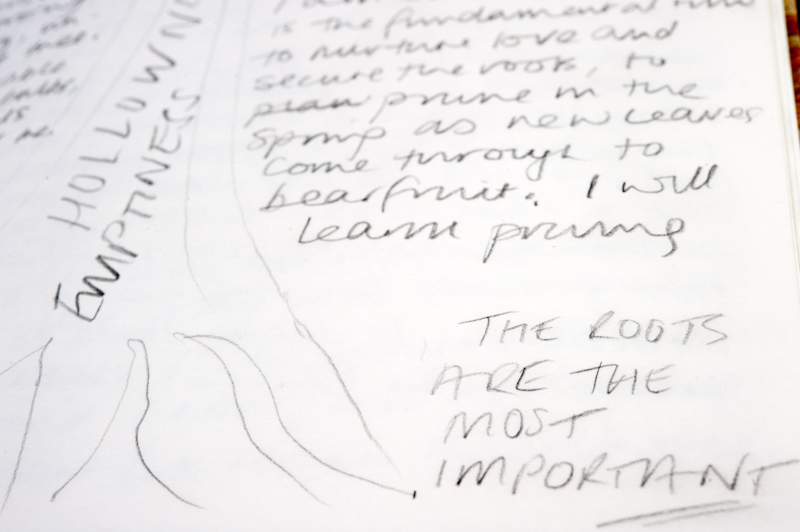 “Some of the most horrifying stories I have heard from St Mungo’s residents have been from women. These are often the granddaughters of women who have had adverse life experiences and it’s gone from generation to generation.”Gabrielle Brown, Psychotherapist for St Mungo’s Life Works Team
“Some of the most horrifying stories I have heard from St Mungo’s residents have been from women. These are often the granddaughters of women who have had adverse life experiences and it’s gone from generation to generation.”Gabrielle Brown, Psychotherapist for St Mungo’s Life Works Team 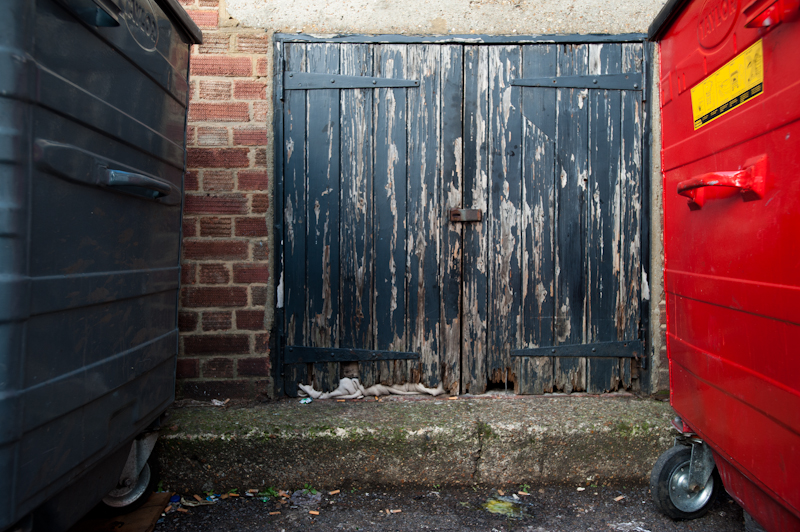 “Lots of the women referred to us are fleeing domestic violence, and are massively at risk on the streets. They are pimped, they are being sexually exploited, they are held in crack houses. When we meet the women they have lost their relationship, they have lost their children, some of them have been abused continuously since childhood. They come with complex needs.”Stella Wells, Manager of St Mungo’s South London Women’s Service
“Lots of the women referred to us are fleeing domestic violence, and are massively at risk on the streets. They are pimped, they are being sexually exploited, they are held in crack houses. When we meet the women they have lost their relationship, they have lost their children, some of them have been abused continuously since childhood. They come with complex needs.”Stella Wells, Manager of St Mungo’s South London Women’s Service 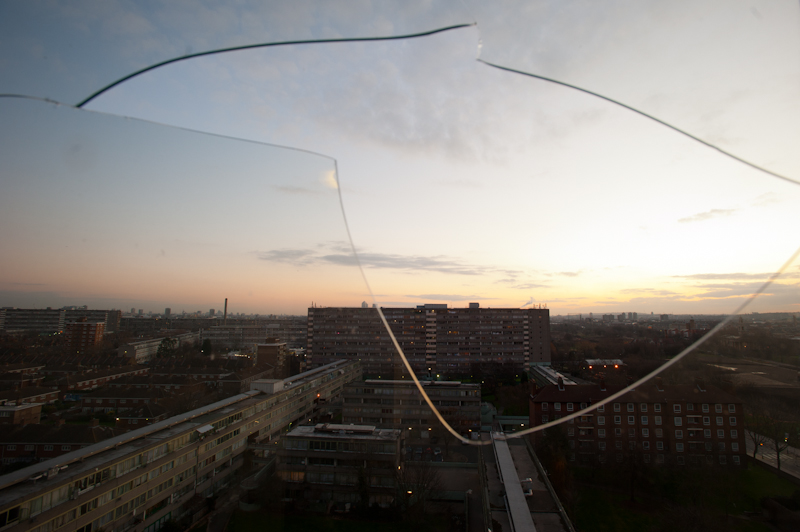 “One of the things I have found distressing is when women in violent relationships have partners who go to prison and get absolutely no psychological help at all. They then come out and the same situation turns around again and again. The popular attitude is for the women to leave rather than for the man to get themselves together. But I think we need to work psychologically with men and offer the same sort of deep and long-term psychological work as we have been talking about offering to women.”Gabrielle Brown, Psychotherapist for St Mungo’s Life Works Team
“One of the things I have found distressing is when women in violent relationships have partners who go to prison and get absolutely no psychological help at all. They then come out and the same situation turns around again and again. The popular attitude is for the women to leave rather than for the man to get themselves together. But I think we need to work psychologically with men and offer the same sort of deep and long-term psychological work as we have been talking about offering to women.”Gabrielle Brown, Psychotherapist for St Mungo’s Life Works Team 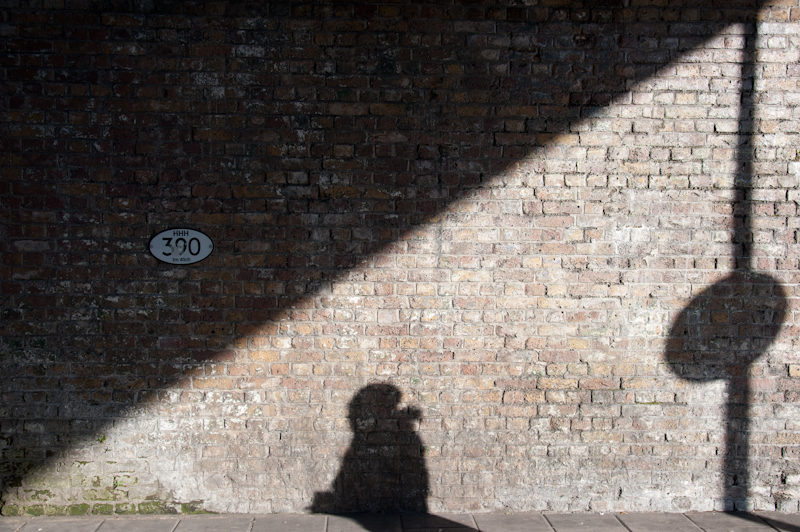 “Women need to know it’s not wrong to come forward and ask for help. It’s not wrong to walk into the police station and explain what’s been happening. People need to know it’s unacceptable to be beaten up or mentally tortured by the person who is supposed to love you. We need to talk openly about domestic abuse. So that everyone knows, actually it’s wrong for a woman to walk into work every day with a black eye.”Stella Wells, Manager of St Mungo’s service at The Chrysalis Project
“Women need to know it’s not wrong to come forward and ask for help. It’s not wrong to walk into the police station and explain what’s been happening. People need to know it’s unacceptable to be beaten up or mentally tortured by the person who is supposed to love you. We need to talk openly about domestic abuse. So that everyone knows, actually it’s wrong for a woman to walk into work every day with a black eye.”Stella Wells, Manager of St Mungo’s service at The Chrysalis Project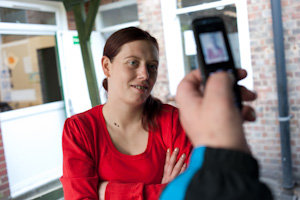 “In very general terms, women seem to be treated more harshly by the criminal justice system than men. People in society don’t seem surprised if a man leaves his children, acts selfishly or desperately, and then breaks the law. But we don’t expect women to behave ‘badly’ and when they do society is hugely shocked and offended. I think this is often reflected in sentencing and perceptions of women who leave prison.” Kate John, Activities Development Worker, St Mungo’s
“In very general terms, women seem to be treated more harshly by the criminal justice system than men. People in society don’t seem surprised if a man leaves his children, acts selfishly or desperately, and then breaks the law. But we don’t expect women to behave ‘badly’ and when they do society is hugely shocked and offended. I think this is often reflected in sentencing and perceptions of women who leave prison.” Kate John, Activities Development Worker, St Mungo’s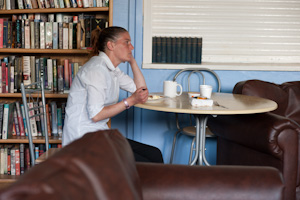 “My experience is that women feel very differently from men about having been in prison. In therapy, women often don’t disclose that they have been in prison or offer details of the experience until trust has been established. By contrast, men rarely feel stigmatised by having ‘done time’. They talk about it freely from the first and sometimes exaggerate their crimes and sentences. Anecdotally, going into custody for many of the women we work with is part of a whole experience of feeling ‘dirty’ and not ‘normal’. Prison is much more identified with masculinity than with femininity.” Gabrielle Brown, Psychotherapist for St Mungo’s Life Works Team
“My experience is that women feel very differently from men about having been in prison. In therapy, women often don’t disclose that they have been in prison or offer details of the experience until trust has been established. By contrast, men rarely feel stigmatised by having ‘done time’. They talk about it freely from the first and sometimes exaggerate their crimes and sentences. Anecdotally, going into custody for many of the women we work with is part of a whole experience of feeling ‘dirty’ and not ‘normal’. Prison is much more identified with masculinity than with femininity.” Gabrielle Brown, Psychotherapist for St Mungo’s Life Works Team 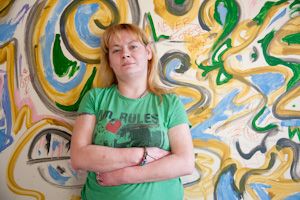 “For some women with previous repeated histories of institutional experience, prisons may represent familiar structures, systems and cultures, and social status, as well as opportunities to address physical health issues, respite from damaging substance use and domestic violence situations. Prisons have struggled however to provide co-ordinated and sustained help in working with these issues in readiness for release; in particular, in meeting psychological and emotional needs.” Lee Murphy, Manager of St Mungo’s Life Works Psychotherapy Team
“For some women with previous repeated histories of institutional experience, prisons may represent familiar structures, systems and cultures, and social status, as well as opportunities to address physical health issues, respite from damaging substance use and domestic violence situations. Prisons have struggled however to provide co-ordinated and sustained help in working with these issues in readiness for release; in particular, in meeting psychological and emotional needs.” Lee Murphy, Manager of St Mungo’s Life Works Psychotherapy Team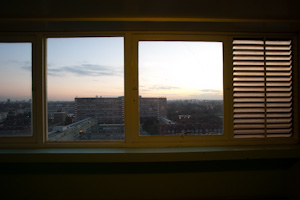
 “There are women we work with who are extremely vulnerable and who have slipped through the net. They don’t want to be out there selling themselves; they are doing that to support their addiction. They are there because they have been forced to do it. They feel there is nobody to help them. They are told if they don’t go out and work then someone will kill them. They are petrified for their lives.” Stella Wells, Manager of St Mungo’s service at The Chrysalis Project
“There are women we work with who are extremely vulnerable and who have slipped through the net. They don’t want to be out there selling themselves; they are doing that to support their addiction. They are there because they have been forced to do it. They feel there is nobody to help them. They are told if they don’t go out and work then someone will kill them. They are petrified for their lives.” Stella Wells, Manager of St Mungo’s service at The Chrysalis Project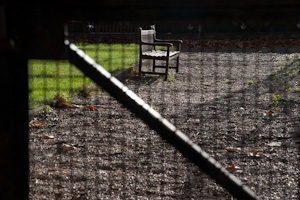 “Women’s ‘crimes of devotion’, such as selling sex to fund their own and their male partner’s drug habit, are more stigmatised than the male equivalent of, for example, theft to fund the couple’s drug use. There is an unquestioned assumption in society that men, however else they may transgress social taboos, would never ‘stoop so low’ as to sell their bodies. Anecdotal evidence indicates this is not true, but the assumption stigmatises women as perverse and ‘broken’. These stigmas are internalised by women in the form of confusion, self-doubt and increased vulnerability.” Gabrielle Brown, Psychotherapist for St Mungo’s Life Works Team
“Women’s ‘crimes of devotion’, such as selling sex to fund their own and their male partner’s drug habit, are more stigmatised than the male equivalent of, for example, theft to fund the couple’s drug use. There is an unquestioned assumption in society that men, however else they may transgress social taboos, would never ‘stoop so low’ as to sell their bodies. Anecdotal evidence indicates this is not true, but the assumption stigmatises women as perverse and ‘broken’. These stigmas are internalised by women in the form of confusion, self-doubt and increased vulnerability.” Gabrielle Brown, Psychotherapist for St Mungo’s Life Works Team 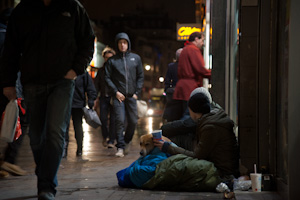 “If you don’t dig deep into the chaotic, substance-using women’s lives, it can become very frustrating. On the surface, they’re very intelligent women who could clearly manage. They can manage a drug habit which is a 24-hour job. They could probably manage a home and other things quite happily. But they have allowed themselves to lose contact with their support networks. And they’ve done that because the drugs took over. And then they feel so guilty that it spirals down again, until their self-worth is so low. That’s frustrating – but also completely understandable. When they take drugs, they forget all their worries. Drugs make them feel good.” Kath Sims, Manager of St Mungo’s Westminster Outreach Team
“If you don’t dig deep into the chaotic, substance-using women’s lives, it can become very frustrating. On the surface, they’re very intelligent women who could clearly manage. They can manage a drug habit which is a 24-hour job. They could probably manage a home and other things quite happily. But they have allowed themselves to lose contact with their support networks. And they’ve done that because the drugs took over. And then they feel so guilty that it spirals down again, until their self-worth is so low. That’s frustrating – but also completely understandable. When they take drugs, they forget all their worries. Drugs make them feel good.” Kath Sims, Manager of St Mungo’s Westminster Outreach Team “One of the main challenges is understanding where the women are coming from. Most are poly-substance users: they use crack, heroin, cannabis and alcohol. In the morning, as you come in, you can be pushed aside by one of the residents rushing out of the door – obviously going to do what they need to fund their habit. Then they come back and they are in pieces and they say, ‘I am sorry for being so rude this morning, I needed to go and sell myself to fund my drug habit, I don’t want this life any more, please help me.”Stella Wells, Manager of St Mungo’s service at The Chrysalis Project
“One of the main challenges is understanding where the women are coming from. Most are poly-substance users: they use crack, heroin, cannabis and alcohol. In the morning, as you come in, you can be pushed aside by one of the residents rushing out of the door – obviously going to do what they need to fund their habit. Then they come back and they are in pieces and they say, ‘I am sorry for being so rude this morning, I needed to go and sell myself to fund my drug habit, I don’t want this life any more, please help me.”Stella Wells, Manager of St Mungo’s service at The Chrysalis Project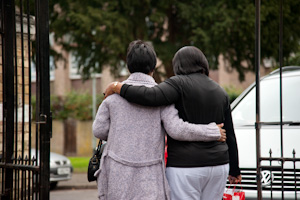 “The main thing is recognising that the women are extremely vulnerable. The majority have an addiction and that plays a major role in their behaviour. Yes, we may have somebody trying to smash all the windows, but the reason is they have lost their children, they were abused throughout childhood and marriage, they lost their home, they feel like a failure. Smashing a window is them living out their anxieties.”Stella Wells, Manager of St Mungo’s South London Women’s Service
“The main thing is recognising that the women are extremely vulnerable. The majority have an addiction and that plays a major role in their behaviour. Yes, we may have somebody trying to smash all the windows, but the reason is they have lost their children, they were abused throughout childhood and marriage, they lost their home, they feel like a failure. Smashing a window is them living out their anxieties.”Stella Wells, Manager of St Mungo’s South London Women’s Service 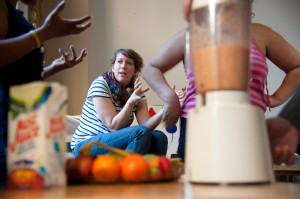 “A big part of hostels is giving everyone the skills to recognise that they deserve better. To give them the courage to speak up, to say ‘No, I’m worth more than this’; ‘No, I deserve better’; or ‘I deserve somewhere safe to sleep, somewhere warm, where I can rest and be safe’. We need to make sure we instill that in them before we send them off into their own flats or the next stage, whatever it might be.”Kate John, Activities Development Worker, St Mungo’s
“A big part of hostels is giving everyone the skills to recognise that they deserve better. To give them the courage to speak up, to say ‘No, I’m worth more than this’; ‘No, I deserve better’; or ‘I deserve somewhere safe to sleep, somewhere warm, where I can rest and be safe’. We need to make sure we instill that in them before we send them off into their own flats or the next stage, whatever it might be.”Kate John, Activities Development Worker, St Mungo’s “Psychotherapy as a profession has considered that the sort of people who might end up in St Mungo’s homeless hostels would not be suitable for psychotherapy. That’s not been our experience at all. People are able to make use of the therapy to build a relationship, even if they are still drinking, still using drugs, still what we would call acting out. Sometimes they have just changed their level of happiness. And sometimes people have changed their behaviours significantly.”Gabrielle Brown, Psychotherapist for St Mungo’s Life Works Team
“Psychotherapy as a profession has considered that the sort of people who might end up in St Mungo’s homeless hostels would not be suitable for psychotherapy. That’s not been our experience at all. People are able to make use of the therapy to build a relationship, even if they are still drinking, still using drugs, still what we would call acting out. Sometimes they have just changed their level of happiness. And sometimes people have changed their behaviours significantly.”Gabrielle Brown, Psychotherapist for St Mungo’s Life Works Team 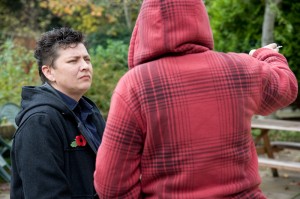 “It’s absolutely amazing: we’ll offer some of the women a trip, just something simple like going to the seaside and they go off on a trip and it’s been a eye-opener for them and they’ve come back and they’ve changed their life. They’re committed to their detox and their recovery and they’re doing really well, reconnecting with family. Some are even travelling all over the world. When it happens, those positive things give the staff motivation.”Stella Wells, Manager of St Mungo’s South London Women’s Service
“It’s absolutely amazing: we’ll offer some of the women a trip, just something simple like going to the seaside and they go off on a trip and it’s been a eye-opener for them and they’ve come back and they’ve changed their life. They’re committed to their detox and their recovery and they’re doing really well, reconnecting with family. Some are even travelling all over the world. When it happens, those positive things give the staff motivation.”Stella Wells, Manager of St Mungo’s South London Women’s Service